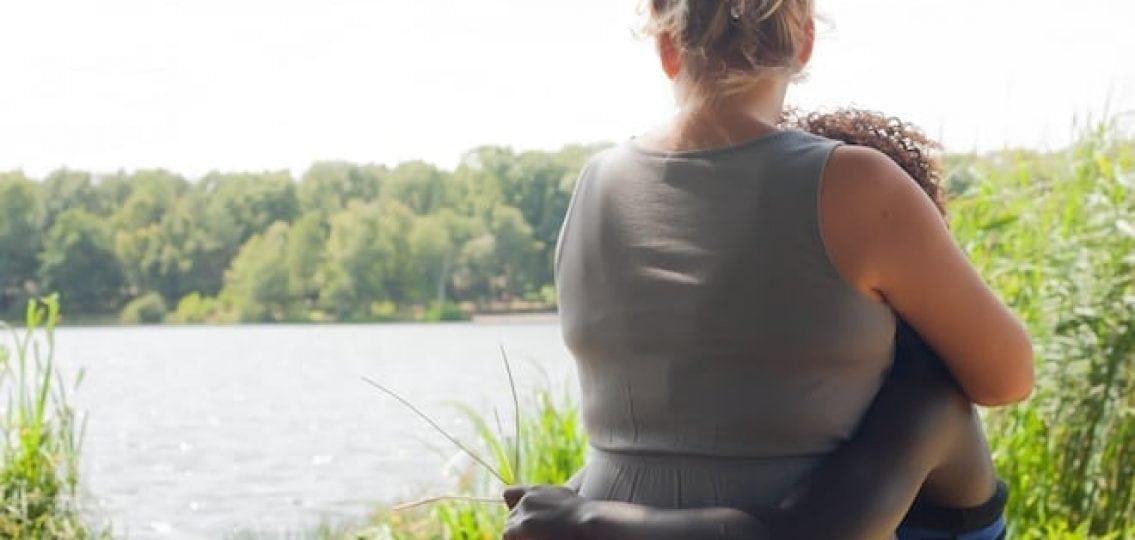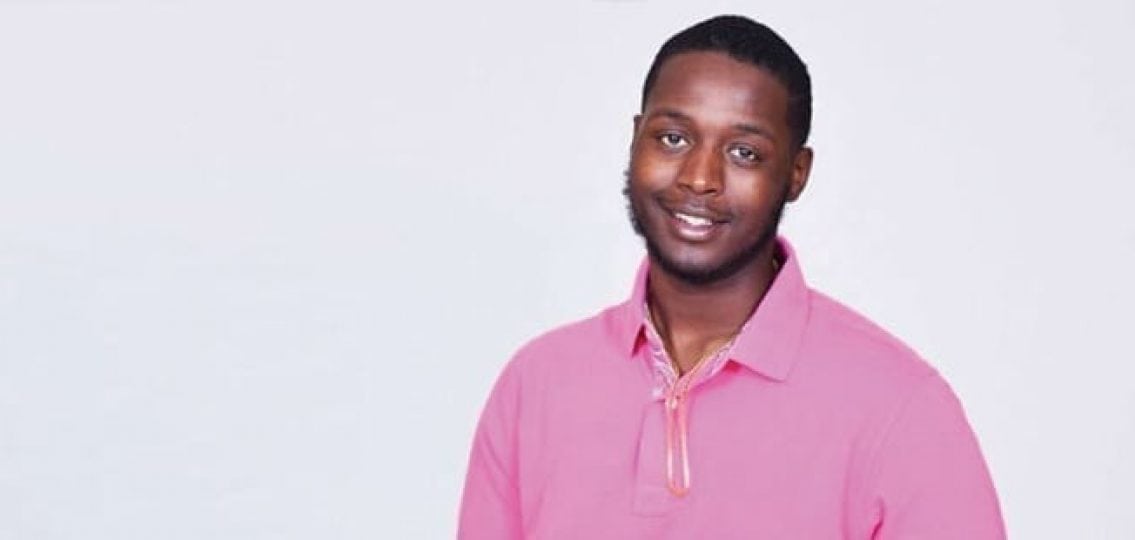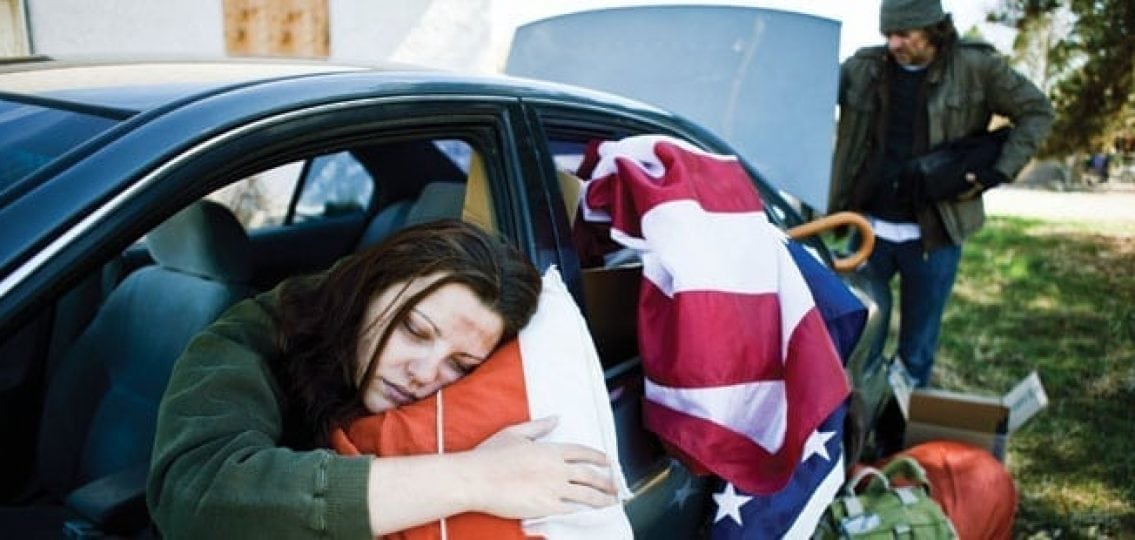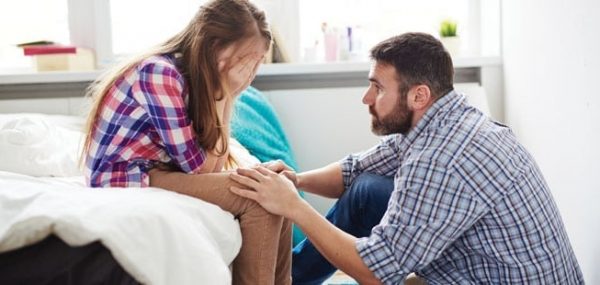According the the Convenant House, over two million kids will experience a period of homelessness of the course of each year. The stories are heartbreaking as it becomes clear that these children and teens have so little control over their daily lives or their futures. Here are some honest and powerful pieces in which several teens and a parent who have all been homeless share their stories.
Teen View |Anonymous
I woke up with my mom and dad yelling and fighting once again. We were living in a motel room. The fight ended with my mom pushing my dad toward the door and yelling “Get the hell out!” and my dad walking out and taking the car.

Soon after, the bitter motel manager, who always reeked of cigarette smoke, knocked on the door. My mom looked out the window, wishing it wasn’t him. She had not paid for the past week we’d been staying there. She looked at me, then glanced at my two little sisters who were on the bed watching cartoons, and whispered, “Shit.”
Slowly, she opened the door and stood quietly, waiting for the manager to speak. After a long second of staring angrily at the floor, he finally looked up and said, “Christine, I need you out by noon today, or I will be forced to call the cops and have you escorted out.”
Before my mom had a chance to respond, he was headed back to the check-in desk.
My mom slammed the door shut, made her way over all the junk that was spread out along the floor, grabbed the phone, and started dialing. I knew it was going to be a long day, so I laid my sisters down for a nap, then started to clean up and put everything in our bags before we had to head out again.
My mom was yelling on the phone, saying that someone owed her and she needed a place to stay for a bit just until she found a job. As I looked away, she slammed the phone down and asked if everything was packed.
“No,” I responded.
“Hurry up then!” she yelled.
My sisters were still lying down as my mom walked out of the room, heading down the stairs. I grabbed them, carrying the one-year-old and holding the two-year-old’s hand, with two bags slung over my shoulder. We made it downstairs, where my mom was screaming because my dad took the car. I sat down next to my sisters on the curb, waiting for my mom to calm down.
We sat there for several hours. My mom finally started talking, ordering us to get up. We walked to an alley near the motel. It was pitch black outside, so we sat by a smelly dumpster. My two little sisters started to say they were hungry and tired, so I dressed them in the two jackets that were in the bag that I packed our stuff in. They soon fell asleep, curled up by my legs.
My mother asked if I was okay, and I said yes. She said to wait there—she’d be right back. I asked where she was going, and she told me not to worry about it, that she’d be back soon.
A man walked by, glanced over at us, and spit near the dumpster. Freezing and scared, I grabbed my two little sisters and climbed into the dumpster with them. I held them while they fell asleep in my arms and waited for my mother to return.
My mom came back in the morning with three 7-Eleven hot dogs and a big soda. She asked why we were in the dumpster. I told her I was scared. She told me I was never allowed to be scared and that I was never to speak about sleeping in a dumpster.
For the next two hours, my two little sisters played around the dumpsters while I looked at a book full of dinosaur pictures. Then my mother grabbed all of our stuff, and we started walking again. We stopped at the freeway entrance and asked for money from people. A homeless man looked at us and gave us his sign that read, “Desperate for help! Anything will be appreciated.” We sat there all day as just a couple of people gave us food from McDonald’s and some change. We finally went back to the dumpster and repeated the same thing for three days.
The fourth day, my mother returned a little later than usual. She ordered us to get up as if we were in a hurry or something and excitedly said we were going home. We all looked at her, confused. We’d never had a home. We had “sleepovers” as my mom liked to call them. We made our way to these apartments where my dad was standing waiting for us, and he picked up my little sisters and asked me how was sleeping at my mom’s friend’s. I glanced at my mom, then back at my dad, responding, “Fun.” He walked us in the apartment and showed us our room. I was so confused, but learned to never question my parents, so I took it without any questioning.
Later, I was placed in foster care and adopted. My adoptive mom put me into a group home when I was 15. It was because I reported her abuse on me. I was going to be homeless on my 18th birthday. Knowing what that was like, I fought that outcome and won financial support until age 21. I now live with the founder of The Teen Project, a program that provides free room and board and college funding for kids aging out of foster care. I am working on my education and job skills so I never have to fear homelessness again.
This memoir comes to Your Teen by way of The Teen Project, a not for profit that helps teenagers who have aged out of foster care. Learn more at theteenproject.com or follow founder Lauri Burns on Twitter @theteenproject.
Teen View | Kevinee Gilmore
What’s the first thing that comes to mind when you think of homelessness? A down-and-out middle-aged person asking for change to buy liquor or drugs? Well, there is another less-visible population—teenagers in the foster care system. My name is Kevinee Gilmore, and I was one of them.
Often, I am asked how it happened, where my support systems were, and where did I stay?
At age 12, I attempted suicide. I was an abused child. My stepfather physically abused me, and my mother had mental health issues. In order to get more money from Social Security, my mom insisted I tell people that I was hearing voices. I was admitted into mental health hospitals and given anti-psychotic medication.
I was devastated when I woke up from my suicide attempt, and I ran away. After several more runs and criminal charges for unruly behavior, I was placed in a detention center. My grandmother wanted to take me, but kids weren’t allowed in her senior citizen housing and she was ill. The Cuyahoga Country Department of Children and Family Services (CCDCFS) took me into emergency custody and placed me in a foster home.
I vividly remember waiting with the social worker for someone to take me to my new home. It was the first of 13 placements. I attended five different high schools and only passed the ninth grade proficiency test in the 12th grade. I hardly had any friends. Each time I got a little comfortable in a foster home, I got kicked out. I hated my life. I never got a chance to be a kid.
But I graduated from high school, and in the foster care world, a high school diploma is like a Ph.D.
On my 18th birthday, I was taken to court for legal emancipation. But then I learned that my foster care mother was kicking me out because she would no longer be receiving any money for me. I was 18, a high-school graduate, homeless and scared.
My social worker suggested college, not to acquire more education, but to “use the dorm as an apartment.” No one had mentioned college to me before. But if they had, I wouldn’t have believed I was smart enough.
I applied and was accepted and told to take any loan they would give me. No one mentioned scholarships or financial aid grants. Once on campus, I began to make friends, and I am glad I did because otherwise I would have had nowhere to go during breaks and holidays.
Then the school informed me that I would one day have to pay back all my loans. I’d felt set up. I had a place to live but was taking on a lot of debt. So I left college, bought a car with my refund check, and began working.
I got a third floor apartment that I could hardly afford while working two jobs. I had no independent living skills and was afraid of living alone. Eventually, I moved in with a family member who said I could live with her for free, attend community college, and help her with her son. I was ecstatic.
It was too good to be true. While I was living at my relative’s home, her boyfriend tried to force intimacy with me. When I told her, she kicked me out. I was hurt, scared, and a homeless teenager in the dead of winter.
I had nowhere to go. All I had was my rundown car. My brother, who was also in foster care, was sneaking me into his placement for a while. I would go in at night and leave in the morning. When his social workers became aware of this, they threatened to take his placement away. Then I began living out of my car, taking showers where I could, and sleeping here and there at friends’ houses
I felt like a burden everywhere I went. I was so hopeless and scared. Then my car was broken into. That was a breaking point—my entire life was in that car. I remember feeling like “Why me? Does God hate me?” I worked at a nursing home and could eat there, but that shortly ended because I was fired for being late to work. That was another low point—with nowhere to go and nowhere to eat, I began to call shelters.
All of the shelters asked my age, whether I had a kid, and whether I had experienced domestic violence. I was so desperate I even contacted my biological mom, informing her that I was sleeping in my car. Her response was she “didn’t give a f**k.” I learned the game quickly; the next shelter I called, I said that I was pregnant. The women there were nice. I was grateful for having a place to sleep. But I was eventually kicked out of the shelter for curfew reasons and returned to the same cycle.
My journey definitely taught me survival skills and gave me resilience. Things began to improve after I met Senine Cook, a CCDCFS independent living worker and the person who most helped me get out of the cycle of homelessness.
Now I’m a college graduate as well as a mother. When I encounter homeless people, I try not to judge them. I wonder whether our challenges are the same, whether they have parents, and whether their homelessness is just a result of no one truly taking the time to help.
I hope my story encourages you to wonder the same. After all, I was a homeless teenager. I was somebody’s baby out there with no real direction, just prayer and faith.
Kevinee Gilmore has a B.A. in social work from Cleveland State University and is now pursuing a master’s degree in special education. She’s a substitute teacher and is also rehabbing abandoned homes in Cleveland for youth aging out foster care.
Teen View |Anonymous
No one wants to think about children being homeless. No one wants to picture innocent faces and associate them with horrific reality. Sweet, syrupy fantasy is easier to swallow than hard, bitter reality. But homeless kids do exist; I exist.
Since I was young, my mother has struggled with addiction. Even though the addiction was her demon, every choice and consequence that came from that addiction directly affected me, including the many times we were homeless. We stayed with family members at first, until my mother burned those bridges. Then we stayed with friends, who were few and far between. But staying in shelters was by far the hardest. It’s not easy to be a child and be homeless. You worry what friends will think—if they would look at you differently if they knew—so you keep it hidden, buried away so no one knows. The problem with burying things and not acknowledging them, I came to find, is that they grow unnoticed inside of you until they become so great they have nowhere to go but out.
Being homeless made me not only ashamed but angry—angry at my mother, angry at myself, angry at the world—and I lashed out in every way I knew how. This monster that was homelessness ate away at me until I no longer cared about anyone or anything, until I became hardened to life and the things that happened to me.
What I didn’t realize then was that I should not have been angry or ashamed, and what I realize now is that I am not less than others just because I was homeless.
To be honest, now that I’m older and on my own, being homeless is still something I struggle with. I still go from house to house and shelter to shelter. While I hope that things will change, at times I am hopeless, stuck in the mindset that things will remain the same.
I wish people would realize that being homeless isn’t a disease you catch.
It’s also not a choice; you don’t wake up one morning and decide, “I think I want to be homeless starting today.”
I was and still am a good person; I was and still am an intelligent young man, despite everything that I have been through, everything I am going through.
Parent’s View | Anonymous
Shameful. Degrading. Humiliating. That’s what it feels like to be homeless. If you haven’t been through it, you might have a hard time understanding the internal struggle homeless people go through, the emotional beat-down we give ourselves over the choices, both avoidable and inevitable, that led to our spiraling downfall.
I was young when I became homeless, but I thought I knew everything. I was living with my boyfriend, and I was wrapped up in a fantasy world, blinded by the warning signs of a controlling relationship. At age 19, I became pregnant. As much as well-meaning adults try to advise them, teenagers are never truly prepared for the struggle that it is to be a parent.
After our daughter was born, her father and I decided I would stay at home and take care of her for the first few months while he worked. The problem soon became that since he was the sole source of income, he alone controlled every aspect of how we spent money. He frequently reminded me how much I relied on him. He often told me that I lived in “his” house. Whenever he was angry, his first reaction would simply be to tell me to get out.
I ignored him for a while, but things quickly escalated. Soon he would tell me to get out even when he wasn’t angry. I was torn; I didn’t want to stay in an unhealthy environment with my daughter where I wasn’t wanted—where we weren’t wanted—but I had nowhere to go, and he knew this. However much he wanted me to leave, he knew I couldn’t, and he would taunt me, telling me I had no friends, no family, no one but him.
As he slowly tore me apart, I tried to rebuild myself, strengthening my resolve to leave even though I knew I had nowhere to go. One day, I just left. I packed up as much as I could manage, mostly my daughter’s things. We went from friend’s house to friend’s house, sometimes even staying with a friend of a friend who was essentially a stranger as a last resort.
It was a rough time. I was living a life I knew wasn’t supposed to be mine, but through it all I kept going, never letting the weight of the situation crush me.
Being homeless and a mother did nothing but amplify the shame and humiliation I felt. No parent is prepared to look into her child’s face and summon words to try to explain this terrifying situation. No parent who has spent years magically kissing away the pain from owwies and boo-boos is prepared for the day her child cries from a pain that cannot be soothed. Dealing with the reality of my child being homeless was the greatest challenge and heartbreak I faced. Losing my home and most of my belongings wasn’t as hard, because I could replace things.
At times when I could barely hold it together from the burden of it all, I remembered that my child was going through the same confusing time that I myself felt barely strong enough to pull through. That is how I knew that I must make it through. The question then became: How do we move forward and heal?
It was two years before we made it out, before I had an income steady and sufficient enough to support myself and my daughter and move into our own home. It was the first place I lived in completely on my own, and I was so proud. We made it. I had come out of it hardened a bit, yes, but stronger, more resilient. I learned from my mistakes and realized that sometimes, hard times happen to the best of us.
Professional View | Karen McHenry LISW-S, LCDC
Almost every day, I talk with or meet homeless teenagers who are reaching out for help. They have sadness in their eyes. Fear in their voices. They are not criminals; they are the victims of homelessness.
No story is the same. One teen may have parents who lost their home because of unemployment or illness. Another may have a caregiver who struggles with addiction. These teens may feel sad, ashamed, and anxious about their family stress.
Youth homelessness is a more serious issue than most people know. Last year, our homeless and missing youth program served 4,000 Cleveland-area teens, families, and community members.
Teen homelessness is not confined to the inner city. It’s likely that a teen in your neighborhood is living with a parent in a car, sleeping on couches at friends’ houses, or staying on the streets. Homeless youth look different than homeless adults and are virtually invisible to most people. They don’t necessarily look dirty— their clothes aren’t always tattered and worn. You will see them in school, at the library, in coffee shops, or other teen-friendly locations, or even in your own home. They may be your child’s friends.
Why does a teen become homeless? According to the National Runaway Safeline:
- More than 50 percent of homeless youth report that their parents either told them to leave or knew of their plans to leave and did nothing to stop them.
- Forty-six percent of homeless youth escaped a home where they suffered physical abuse.
- Many have been rejected by their families because of their sexual orientation.
When a homeless teen tells me his or her personal story, I always hear pain, shame, sadness, and stress. Many homeless youth have developed a powerful ability to survive. Young people who leave home often find themselves scared, confused, lonely, hungry, and cash-strapped. They may have substance abuse and/or mental health issues. As a result, they easily fall victim to drug and alcohol abuse or dealing, physical and sexual abuse, violence, and/or suicide.
Homeless teenagers often suffer from severe anxiety and depression, poor health and nutrition, and low self-esteem. Some teens will overcome this and use the experience to motivate themselves, and others will struggle for years.
Runaway and homeless youth are particularly at risk for engaging in survival sex, which means trading sex for money, a place to stay, even food. One in three youth who have been gone from home for two weeks or longer are at serious risk of being trafficked for sex.

One of the most important things you can do to protect your own teen is to create an environment in which he or she feels comfortable talking with you. Open communication is key. Ask about friends and classmates. Know where they go when they leave the house. Show your teen’s friends that you are a trusted adult and can help if needed. If you believe a teen you know is in trouble, you can call 211 to be connected with services in your community.
Karen McHenry is the homeless and missing youth program manager at Cleveland-based Bellefaire JCB, a national Safe Place partner. She is the recipient of the Childcare Worker of the Year Award, and the National Direct Service Worker Merit Award from Child Welfare League of America.
In Cuyahoga County, call the Homeless and Missing Youth 24/7 Hotline at (216) 570-8010.




